| Patriot Outreach Supporting all Military Service Men, Women, Retirees, Veterans, Government Civilians, Battlefield Contractors, First Responders and their Families (Patriots) |
| Home | My Story | Programs | What's Happening | About Stress & PTSD | News & Reports | Donate | Mission | Contact |
 Guidelines for Vets’ Families
Guidelines for Vets’ FamiliesDr. Raymond M. Scurfield, DSW, LCSW
Vietnam Veteran, author of A Vietnam Trilogy of books. (New York: Algora)
About Dr.Scurfield Current C.V.
PDF Version Word Version
Pre-publication excerpts: Scurfield: From the Vietnam & Gulf Wars to 9/11 & Iraq. Veterans, Families, Post Traumatic Stress and Healing (New York: Algora Publishing)
| Sections: | |
| 1. | What is the Family to Say and Do After The Vet Returns From Deployment? |
| 2. | 21 Do Not's And Do's To Consider: The Do Not's The Do's |
| 3. | Possible Positive Impact Of War And Deployment |
What is the Family to Say and Do After The Vet Returns From Deployment?
There is no adequate “cookbook recipe” of do’s and don’ts that all families of all Veterans returned from deployment should do and not do. This is for a very simple reason: no one can package a bottle that contains “the appropriate response to suffering.” And words intended for everyone will almost prove worthless.| For one individual person, if you go to the sufferers themselves and ask for helpful words, you may find discord. Some recall a friend who cheerily helped distract them from the illness, while others think such an approach insulting. Some want honest, straightforward confrontation; others find such discussion unbearably depressing. |
Recognizing that there is no magical set of responses for the family to carry out, the following are offered in the spirit of a general set of principles or precepts. And I am writing this section directly to you, the partner (and other family members/significant others) of a war-zone Veteran.
You must consider how each of the following may fit or not and is relevant or not for you and your family and for the Veteran returned from deployment. Your reasoned judgment will take into account, rather than rigidly following in cookbook fashion a recipe of do’s and don’ts, how such do’s and don’ts match well or not with the strengths and shortcomings of all of your personalities, the quality of your past history and relationship, and any unresolved personal and relationship issues stemming from before and/or during deployment with your Veteran partner and that may arise with the re-entry of your Veteran partner into the family life.
It has been asserted that what people in pain (physical and/or psychological) most need is love, “for love instinctively detects what is needed.” In this regard, Jean Vavnier, founder of the l’Arche movement, said:
| "Wounded people who have been broken by suffering and sickness ask for only one thing: a heart that loves and commits to them, a heart full of hope for them." |
Never underestimate the power, even if it is not immediately noticeable, of simply communicating with your Veteran partner through words and actions that you are available, you are here for him/her.
| It is our mere presence [affirming that] . . . The world will go on. I am with you in this scary time . . . We will not leave you alone. We will bear this pain with you. |
This is a most powerful gift to offer to your Veteran spouse, in that:
| People who are suffering oftentimes feel an oppressive sense of aloneness. They feel abandoned, by God and also by others, because they must bear that pain alone and no one else quite understands. Loneliness increases the fear, which in turn increases the pain, and downward the spiral goes . . . . |
These words perfectly describe the angst that many Veterans troubled by their war experiences evidence, sooner or later, after returning from deployment. I want to emphasize “sooner or later” in that most Veterans will not show such angst or the depth of such angst in the glow of the “honeymoon” period immediately following return from deployment. However, inevitably the honeymoon glow fades and then if there are serious underlying issues from the war, such will start to reveal themselves.
Finally, it is important to emphasize that the development of stresses and strains following the Veteran’s return from deployment, even the most severe problems that are war-related, will not necessarily result in disaster or a splintering apart of the relationship and the family. Nor will it necessarily result in the family pulling together and becoming closer and stronger. This dynamic is eloquently described by Yancey in a conversation with a couple whose relationship was sorely challenged when the wife found herself battling Hodgkin’s disease.
| ‘I asked Claudia and her husband why that crisis seemed actually to pull them together, whereas more frequently a life-threatening crisis creates tension and pushes a couple apart.’ Claudia responded: ‘In the movies, couples who have fought for years suddenly in the face of danger forget their differences and come together. But it doesn’t work that way in real life. When a couple presents a crisis, it magnifies what’s already present in their relationship . . . the crisis of the illness merely brought to the surface and intensified feelings already present.’ |
In my clinical work with hundreds of Veterans of all wars over the past three decades, I have noticed how many vets strongly over-endorse the source of any post-war problems to be the war and the transition back home, period. “I’m this way because of the war,” or “It’s because of the war.” What typically is missing from many Veteran’s thinking and beliefs is to also consider the important role that their life before the war may have played. And it is essential to note the word “also”, along with what happened during the war. I have used the “blank tablet metaphor” to get this critically important point across when talking with vets:
| Let’s be very clear. No one went to war as a “blank tablet.” No one. We all went as some-one, as some-body. We all had personalities, strengths and shortcomings, values, beliefs, prejudices, relationships, successes, problems, issues and dreams. And you, this some-body, entered the military and went to war. And you brought inside of you to the war all of those personality characteristics, strengths and shortcomings, values, beliefs, prejudices, relationships, successes, problems, issues and dreams with you---we all did. And what we brought with us to the war somehow interacted with what each of us experienced during the war, resulting in unique combinations arising out of who were before the war and during war. And so, there is no way to begin to understand the possible impact of war unless you have a clear sense of your personality before, during and following exposure to war trauma---both those aspects that changed and just as importantly, those aspects that remained the same or seemed to go underground during the war but reappeared later. |
Long-standing personality characteristics, personal strengths and issues, and positive and problematic relationship patterns that existed before deployment within the Veteran and in the Veteran’s relationship with partner, children, extended family members, all will come back with the Veteran following deployment. However, these pre-deployment factors are now mixed inextricably together with the remarkable highs and depths of the experiences of war. And all that, together, comes home with the Veteran and into the family. And so, it is inevitable that the mixture of pre-war and deployment factors will be exacerbated by the Veteran’s post-deployment readjustment. Such long-standing issues and problems will require their own attention and must not be ignored or subsumed by focusing entirely onto the Veteran’s war-related problems as “the” problem.
The partner back home, the children, significant extended family members all also have their unique combinations of pre-war characteristics, strengths and problems. These inevitably become intermingled with their life experiences while the Veteran has been deployed. And, similar to the Veteran, their combination of pre-deployment and life experiences and characteristics and patterns during the partner’s absence while on deployment now come face-to-face with the returned Veteran who has been extraordinarily impacted by war.
And so, just what is the family to say and do in regard to a Veteran who has recently returned from deployment and who appears to be quite different, appears to have been significantly impacted by the war? Should the partner and family remain silent and just avoid talking with the returned active duty about these noticeable changes (that are negative) in the hope that he/she eventually will revert back to how he/she was before being deployed? And, of course, there also could be positive changes.
But the rest of the family has needs and wants right now. And the family has just as much right and needs as does the returning Veteran to be reached out to, listened to and understood, and their issues and feelings respected and addressed. Therefore, it is essential to focus on the big picture, to be very aware and sensitive to the mental and emotional state, and the wants and needs of the Veteran, and of you the partner, any children and any extended family members important in your lives.
All have the right for your wants and needs to be considered in a balanced and meaningful way.To put a singular focus on the Veteran’s needs and wants, or on yours, or on your children’s, or on extended family members, is not fair, is not sufficient and just will not work. To be of optimal help to your Veteran partner, you first must understand what your primary needs and wants are right now, as you and the family are readjusting to the Veteran being back and adjusting to someone who has been profoundly touched by war.
| • | Are you resentful, relieved, entrenched in daily habits developed while your Veteran partner was deployed, resistant or very ambivalent that your Veteran partner has disturbed whatever homeostasis you had achieved in his/her absence? |
|
| • | Do you want to just drop all the responsibilities onto your Veteran partner, because you are exhausted and angry and needy and want your own space that was impossible to have while your partner was deployed? |
|
| • | Or, are you so happy to have him/her back that you choose to bury or deflect all or most of your or the family’s pent-up feelings and issues and defer to your Veteran partner’s needs and wants? |
Of course, you also must pay close attention to what is going on with your Veteran partner recently returned from deployment overseas. Look closely and be aware, to the extent that you can, of what is going on with your Veteran partner.
| • | The vast majority of Veterans who are recently returned from war appear to be all right, do not want to dwell on what has happened to them while they were in the war, don’t want to spend much time talking about it, thinking about it, or feeling about it. Rather, they want to put it aside, deflect it or bury it and get their lives back. This is normal and expectable |
| • | There is a substantial sub-group of returned Veterans who remain totally or partially preoccupied with the war and what happened, are obviously impacted about what they have experienced, are either sorely troubled and/or become quite isolated. Ironically, most of this group of returned Veterans, similar to the first group, also do not want to dwell on it, don’t want to talk about it, think about it, or feel about it. They too want to put it aside, deflect it or bury it and get their lives back to normal. |
| • | There is a third and the smallest sub-group of Veterans. This sub-group reveled in the war, misses it, yearns for it, talks about it, immerse themselves in the memories and happenings about war. This third group is of critical immediate concern; they probably are extremely resistant to changing anything about themselves, don’t really like much about normal civilian life, and make it almost impossible for you to connect with them in a meaningful way. You will need help to be able to deal with such Veterans, and they need help (if they have any motivation to be back in the normal world) but in all likelihood will not avail themselves of it. |
| • | So, the most fundamental “do” is: do take care of yourself. Get help for you, learn how to take care of yourself with a Veteran partner who wants or seems compelled to relive and stay in the war even though he or she is now stateside. The only “cure” may be for your Veteran partner to head off on another deployment. Some relationships stay intact precisely because the Veteran partner does go on relative frequent deployments and because both partners prefer it this way. |
When you put all of the above together, it is clear that this is a most challenging set of tasks. Yes, the service member returned from deployment has the personal responsibility to let the family know when he/she is ready or available to connect with you or not. However, the family also may well find it necessary to become adept at the rhythm of contact and withdrawal. ‘I’m here, my ears and heart are available when you want to talk.” Then, you pull back some and give space, repeating this dynamic countless times over weeks, months and perhaps years. You stay around and make it clear that you are available when your Veteran partner is more ready to connect with you and the family.
Furthermore, readjustment requires a remarkable balancing act by both the returned service member and the family. The Veteran is responsible to be aware of when he or she is struggling with deployment-related issues and problems, and doing something about it. However, the service member may be in denial about this. And so, the family may have to decide if it is necessary to confront the service member about his/her denial and/or do a balancing or juggling act to some degree between and amongst the array of competing needs and wants of the Veteran, partner, any children and any involved extended family members. Yes, everyone has some responsibility in this regard. Even so, the partner may find her or himself in the position of having to decide if and when to become more assertive with your concerns to your Veteran partner and not just allow a bad situation that is not showing much sign of improving to stagnate or become entrenched and chronic. Did anyone say that life was fair?
The vast majority of vets who are trying to deflect, deny, minimize or bury what has happened in the war and what may be going on inside themselves about the war, may need a wake-up call about their denial and avoidance. This might be from a close friend, religious confidant, and/or perhaps from the partner. The family may be put in the position of having to decide if you are willing to engage in strategies of interacting and balancing competing needs and priorities, and perfecting the art of contact with and withdrawal from your partner and/or insisting that the service member become more responsible. Either or both actions may be pivotal to the mental health and happiness of both of you and of your family. And the service member of course has personal responsibility to do what he or she has to do to deal with possible deployment-related problems and issues. And the family may have to decide if you are willing to do what you have to do to stay---or get---skilled at balancing patience and persistence, diplomacy and assertiveness, and giving to your Veteran partner while also being vigilant to taking care of your and your family’s needs and wants. This is not an easy row to hoe, and why getting assistance and support for you may be very advisable.
21 Do’s And Do Not’s To Consider
The Do Not's
| • | Do not say, “I understand,” or “I know you feel.” No, you don’t understand. And you don’t know how the vet is feeling. If you weren’t in war, you don’t understand. Period. However, you may well understand from your own life experience how it feels to not want to talk to anyone, or how it is to feel that no one will be able to understand about something you have experienced, or how you may have hoped if you could just ignore something festering inside you that it would eventually go away. |
||
| • | Do not push or insist that your Veteran talk about the war if he/she does not want to. It is too sacred a subject to attempt to pry the details out of someone---you are trampling on hallowed ground. |
||
| • | Do not say, “Did you kill anybody?” Or, “How did it feel to kill someone?” If the vet wants to share this, the vet will share it. Otherwise, this is received as an invasive and unwanted demand for the most extremely personal of information. One returned Iraq vet is described while being interviewed by a reporter at a small coffee shop. |
||
| His voice rose as he talked. It was loud, too loud, his sentences laced with expletives. People moved away as he talked about “stupid” people at home asking him if he’d killed anyone in Iraq. ‘I just told them to shut up or I’d kill them!’ |
|||
| • | Don’t take it personally when your Veteran does not want to talk about it. The fact that you are not a combat Veteran is important; your Veteran partner will probably be, by far, most comfortable talking about the war experiences in any detail with another combat Veteran. It is crucial to remember that the reluctance and difficulty in your Veteran partner relating intimate details about the war to you has much less to do with you than it has to do with the Veteran feeling that no one but other combat Veterans could possibly understand. And that may be true for many . . . | ||
Also, the Veteran typically is concerned about “taking the lid off” of all the marked and severe pent-up feelings and memories that have been buried. Because, you see, the fear is, “If I open the lid (of the memories, emotions, trauma) I may not be able to put it back on again.” This reluctance to want to open the lid because of the preoccupation with fear that you won’t be able to cover it over again is why there are a number of other war Veterans who just don’t want to talk much to anybody, not even to other vets, about what happened in the war. As one such Vietnam Veteran told me:
| "When I got back from Nam, the only people I could relate to were other Vietnam vets---and they were the last ones I wanted to be around." |
| • | Don’t make ultimatums or threats that have severe consequences and deadlines attached to them unless you are absolutely at the end of your willingness to wait, like, “you need to get it together now, it’s been ___weeks or ___months of being withdrawn, moping around, etc. If you don’t go see a counselor this week, I’m going to leave you.” Big mistake; most combat vets do not respond very positively to threats. This isn’t a poker game where bluffing and deception go hand-in-hand with winning. |
| • | Don’t try to lay a guilt trip on your vet about how it’s time to stop being so self centered or it is a test of your relationship, i.e., “If you really loved me, you would share more with me”. Your Veteran partner, I can guarantee, already has more than enough guilt about what he/she did in the war or about the hardships you and the family may have gone through while he/she was deployed. So piling on yet more guilt trips will only exacerbate war-related issues (that your Veteran partner needs to deal with) and intermingles those with your relationship dynamics. |
Does this mean that there is not anything that you can or should do? On the contrary:
| • | Do not ignore warning or trouble signs in your vet that there is stuff going on inside or behaviors that indicate potentially serious problems---such as excessive drinking, isolating, mood swings, anxiety and sleep disturbance. You need to point such things out, but not dwell on them, at least for awhile, depending on how severe such problems are. |
| • | Do not ignore your own needs and wants. You are a person who has the right to have at least some of your needs and wants met, no matter how troubled your Veteran partner is. And so do your children and perhaps important extended family members such as parents or siblings. |
| • | Do not ever allow your Veteran partner to treat you meanly, or disrespectfully, or in a threatening way. And absolutely do not ever tolerate your Veteran partner hurting you or your family. Violence in war is one thing. But to bring it back into the home is quite another matter; it is never excusable. If you can’t protect yourself or your family, then immediately go talk to someone who can help you. |
| • | Do remember to reach down deep within and get and stay in touch with the love that you have for your Veteran---even if it is love more for how he or she was before deployment than how he or she is behaving right now. |
| • | Do remember that it is your relationship that should be at least as important as the individual needs and wants of each of you; what is best for your relationship right now, not what is best for you or what is best for your Veteran partner. |
| • | Do hold hands and look each other in the eyes. I don’t remember much of anything specific that I was taught in almost ten years of undergraduate and graduate study. But there is one thing I remember very clearly from a favorite social work professor, John Milner. He said, if you and your partner are having a serious argument or harsh words or tempers are rising, both of you stop. Be silent for a moment, compose yourselves, stand in front of each other, hold hands, look each other in the eyes, and now start talking to each other while continuing to hold hands and looking in each other’s eyes. You almost surely will calm down and start relating to each other rather than talking meanly at each other. |
| • | Do be out front by saying: Do you want to talk a little with me about the war? Are you willing to share with me some of the good times, some of the bad times? If not now, possibly later? And I need to be able to ask you these same questions again at another time, because otherwise you may never come to me first and start talking about it. Tell me the best way to approach you. |
| • | Do remind your Veteran partner about the literature you have in the house that describes the warning signs and triggers about post traumatic stress and lingering combat stress reactions and that are reminding you of him or her. And if you don’t have any such literature, get some ASAP from a military family support agency or ombudsman/family support volunteer, a partner support group, a VA Vet Center or a Veteran’s Service Organization and become familiar with the contents. |
| • | Do recognize that your Veteran partner will probably be very resistant to going to talk to anyone, including you, about what is going on. The Veteran may not respond positively to your suggestions today or tomorrow or next week, and so you have to be both persistent and diplomatic/gentle in continuing to bring up your concerns. |
| • | Do say: I know I can’t fully or perhaps at all understand what is going on with you, because I wasn’t there in the war. |
| • | Do say (if you genuinely mean it). I really do want to better understand, and request that you help me better understand. If you don’t tell me anything, then you are shutting me out and it will be impossible for me to ever really understand. Please don’t shut me out completely. |
| • | Do say: I don’t need or want to hear all the gory details. I just want you to please share at least some of what is going on inside of you, some of what you are feeling angry about, or sad about, or anxious about, or any other important feelings. Are you willing to share at least a little of that with me today? And gently yet persistently make this request at other times. |
| • | Do ask your vet: Are there any books, articles or other readings about war and what happens in war, or any movies, or any songs/music that are personally meaningful that you could recommend to me that could give me at least a little better understanding of what it was all about, about what was so meaningful for you? And then I would like to talk with you a little about it. [Many vets will be much more comfortable with you learning in this manner, rather than you expecting your Veteran partner to talk in great detail and express heavy pent-up emotions.] |
| • | Do say: Please let me know if I am saying something offensive, or that hurts you, or when it feels like I’m trying to pry you open and you feel that I am trying to invade into your most deep and personal feelings and issues. And I really want you to tell me that gently, in a respectful way. Telling me in an angry way doesn’t help anything---and I don’t deserve or need your anger being directed at me. And that goes both ways. I am going to let you the Veteran know when you may say something offensive to me, or that hurts me, or when it feels like you’re trying to invade my most deep and personal feelings and issues. And I want to tell you that gently, in a respectful way. Telling you in an angry way doesn’t help anything and you don’t deserve or need my anger being directed at you. |
| • | Do say: I’m here for you. And I want you to be here for me, even if you can’t be here for me as much right now as I want you to. Because I am in this for the long haul. [However, if you are having serious doubts that you still committed to this relationship, then that is another matter entirely that requires your immediate attention.] |
| • | And do put on your oxygen mask first. This is the bottom line do or don’t—to first take care of yourself. As we all know, the proper procedure on an airplane when the oxygen masks drop down is to put your oxygen mask on first; otherwise you will be in no position to help anyone else. The same principle applies to you at home. Seek help if you are hurting, whether or not your Veteran partner does and whether or not your Veteran partner wants you to. This is your right. And one of the most powerful sources of support and understanding will be with and from partners of other Veterans who have returned from deployment. |
| • | War always has a long-standing impact on all combatants and others who serve in a war-zone |
|
| • | this impact on them is brought home and absolutely will have a significant impact on the Veteran, you (the Veteran’s partner), children and significant extended family members. |
No amount of hoping will wish this reality away. And if you and your Veteran partner are not able or willing to deal with it today or tomorrow or next week or next month, it almost surely will still be an issue and then even more entrenched and complicated several months from now or next year or next decade---if you are still together at that point.
Readers are encouraged to read some the excellent writings that focus on the dynamics of families of Veterans mentioned earlier, visit some of the web sites established regarding children of Veterans, and web sites regarding wives or families of Veterans. It is critically important not to be a “lone ranger.” If you are family of a Veteran still on active duty, please contact a military family support center or community service center, military base ombudsman or family readiness group, wives support group or military chaplain. If you are family of a Veteran who is no longer on active duty, contact the local VA Vet Center, VA social work department, VA specialized PTSD program, or county or state Veteran’s service officer or Veteran’s service organization representative who can refer you for family assistance.
Possible Positive Impact Of War And Deployment
It is important to note that the preceding discussion has emphasized the potential and actual negative impact, both short and longer-term, of being in war---because this amount of information typically is never given routinely or comprehensively. There is a whole other side---the remarkable positives, the extraordinary valor, strengths, comradeship, heroism, and humanity that can characterize what goes on in wars, and can be brought home and remain a powerful positive within many Veterans.
Families may be blessed with the development of resilience, strength, and a very positive identity as a military family or as the family of a Veteran, proud of the service their spouse or parent or sibling has given to our country, and the sacrifices made both by the active duty military person or the Veteran and by the family. And the experience of being part of a family with a member who has served in war can help equip both the returned Veteran and the family with a strength, courage, pride, perspective and grace that is profound. They truly know what the price of freedom is, and it is not free.
Such was revealed in the stories of the brave and proud Veterans as described in the first two books of the Vietnam Trilogy series who participated in such amazing experiences as the dedication of the national Vietnam Veterans Memorial in Washington, DC, our helicopter ride therapy and Outward Bound adventure therapy, who returned to Vietnam in 1989 and in 2000 and the many wonderful attributes that will be further described in a later chapter. In the words of a Vietnam Veteran 20 years after the war:| Maturity, self-esteem, teamwork, accomplishment, pride, excitement, and adventure are certainly as much a part of the war-zone experience as anything else. For these, I am extremely gratified. |
In the words of an Iraq Veteran while still in Iraq:
| "These two deployments have taught me a degree of patience and tolerance that I never thought possible. I have been forced to live in terribly deprived conditions and with ungodly levels of frustration and uncertainty, far more than in any arena of my life as I knew it before OEF and OIF. I have learned to live without the most basic comforts of life for months on end, without privacy and with restrictions I have never known before. To this end, I will have learned to appreciate why freedom has a tremendously high cost. I am grateful to be among the finest in this struggle to bring democracy to the people of Iraq so that someday they can live as we do in America." |
 My Testimonial COL Antonio P. Monaco |
| Featured Articles |
The Real Cost of the War A special report: Why is the U.S. ignoring battle-scarred soldiers?  Warning Signs, Triggers and Coping Strategies Warning Signs, Triggers and Coping Strategiesby COL Kathy Platoni (Psy.D.), 307th Medical Group |
| Guidelines and Materials |
 Guidelines for Guidelines for Vets' Families Important advice for families of Veterans to help them cope and overcome stress. |
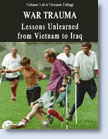 War Trauma: Lessons Unlearned from Vietnam to Iraq War Trauma: Lessons Unlearned from Vietnam to Iraqby Dr. Raymond M. Scurfield, DSW, LCSW Order the Book |
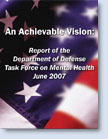 Task Force On Mental Health Report Task Force On Mental Health Report Department of Defense PDF Format |
| Support |
 God Bless the USA God Bless the USA Special Video Feature |
 Reason & Emotion Reason & EmotionEnjoy a Walt Disney Classic! |
 LifeLine Resources LifeLine ResourcesBest Online Support |
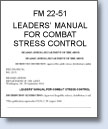 FM 22-51 FM 22-51 Leaders' Manual for Combat Stress Control |
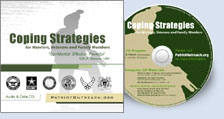 Coping StrategiesTM A special Multi-Media CD - an offline version of the PatriotOutreach website |
 Freedom FreedomA touching video about why we honor, cherish and celebrate freedom. |
 Sounding Off! Sounding Off!Listen in! and, discover more insights, news and feedback. |
 Outreach Newsletter Outreach Newsletter Sign up for the debut issue the Patriot Outreach email Newsletter. FREE |
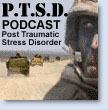 PTSD Podcast PTSD Podcast(Coming Soon) Get answers, help and news about stress, PTSD and Vets' issues. |
 Brainwashing Booklet Brainwashing BookletPrepare to be shocked! Explore the secrets and history of mass mind control. |
Write to us at: Patriot Outreach, 816 North Main Street, Suite 126, Lansing, KS, 66043
or
Call Toll Free: 1-866-96-STRONG (866-967-8766) (8am to 4pm Pacific Time) Email: info@PatriotOutreach.org
Copyright 2006-2014 Patriot Outreach
